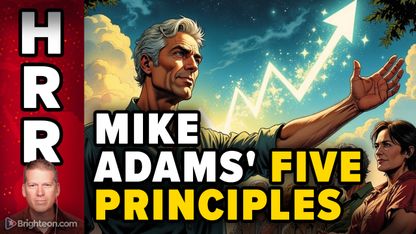
- The mid-20th century saw Detroit's Big Three (GM, Ford, Chrysler) redefine American life through mass auto production, but their unchecked growth caused severe environmental damage, leading to long-term public health crises.
- Automakers used lobbying, campaign financing and manipulated science to block clean air laws, prioritizing profits over public welfare, delaying critical innovations like catalytic converters despite proven benefits.
- While touting eco-friendly initiatives, the industry often undermines sustainability efforts, fighting stricter emissions standards while promoting superficial "green" PR campaigns.
- Doyle highlights activists, engineers and advocates pushing for systemic change, showing potential pathways to a cleaner future despite industry obstruction.
- The book serves as both an exposé of corporate negligence and a rallying cry for environmental justice, urging transformative action to address climate and public health challenges.
In the booming heart of mid-20th-century America, Detroit stood as the unrivaled epicenter of automotive innovation and industrial might. The Big Three – General Motors, Ford and Chrysler – were not just manufacturers; they were the architects of a new American way of life, fundamentally reshaping everything from cityscapes to global oil dependency. However, as Jack Doyle meticulously chronicles in his groundbreaking book, "Taken for a Ride: Detroit's Big Three and the Politics of Pollution," this era of prosperity came at a staggering environmental cost, one that continues to reverberate through our ecosystems and public health today.
Doyle's narrative opens with a sobering depiction of the auto industry's unchecked growth during the mid-1900s. The Big Three, driven by an insatiable thirst for production and profit, paid scant attention to the environmental fallout of their operations. As millions of vehicles rolled off assembly lines, they brought with them a toxic tide of emissions, setting the stage for a public health crisis that would span decades.
But the story quickly shifts from one of mere industrial negligence to one of calculated political maneuvering. Doyle reveals how the auto giants leveraged their immense economic power to systematically dismantle regulatory efforts. Through a combination of aggressive lobbying, strategic campaign contributions and even the manipulation of scientific research, the Big Three managed to stave off stringent emissions regulations, effectively putting profit margins before public welfare.
One of the most startling revelations in Doyle's book is the industry's successful campaign to delay the adoption of catalytic converters. Despite overwhelming evidence demonstrating their efficacy in reducing harmful emissions, automakers argued that these devices were prohibitively expensive and would cripple their business. This delay, as Doyle illustrates, had dire consequences for air quality and public health, contributing to respiratory illnesses and other pollution-related ailments.
While the book delves deeply into the past, it also offers a critical examination of the present-day battle for cleaner transportation. Doyle highlights the tireless efforts of government agencies, environmental groups and consumer advocacy organizations that have pushed for meaningful change. Yet, he also underscores the auto industry's persistent resistance, often opting for incremental adjustments rather than the transformative changes necessary to combat climate change.
A significant portion of the book is dedicated to the concept of "greenwashing," where companies make misleading claims about their environmental commitments. Doyle argues that while the auto industry has made strides in producing more fuel-efficient vehicles and exploring electric options, these efforts are frequently more about public relations than a genuine dedication to sustainability. He cites instances where automakers have promoted "eco-friendly" models while simultaneously lobbying against stricter emissions standards.
Despite the book's critical tone, Doyle also shines a light on the grassroots movements and visionary thinkers who are challenging the status quo. From engineers pioneering alternative fuels to activists campaigning for tougher emissions regulations, he showcases the people and ideas that offer a glimmer of hope for a cleaner, greener future. These stories serve as a powerful reminder that change is possible, even in the face of seemingly insurmountable odds.
Doyle's meticulously researched and compellingly written book is a powerful indictment of corporate negligence and a rallying cry for environmental justice. As we stand at the crossroads of environmental sustainability and industrial growth, "Taken for a Ride" offers invaluable insights and a clarion call for change.
Learn more about the book "Taken for a Ride" by watching the video below.
This video is from the BrightLearn channel on Brighteon.com.
Sources include:
Please contact us for more information.































